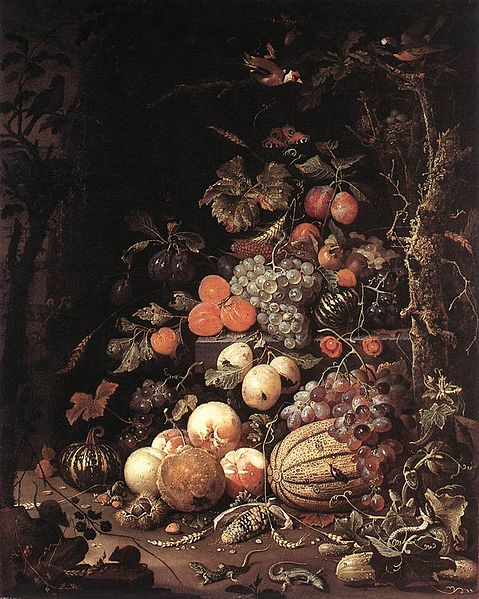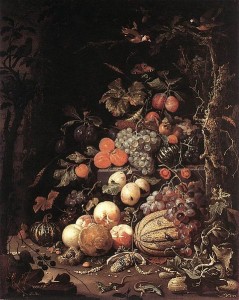Sometimes something is so obvious we forget to wonder why; why do our fingers resemble prunes when we over-extend our bath time, why don’t humans have a penis bone (stop sniggering in the back please and have a look at these fascinating links) and why do prunes rot when the very purpose of fruit is to be eaten?
I’m guessing that for the last one you might say that fruit rots because all the bacteria have decided that you have overlooked the healthy option for the biscuits one too many times and so have decided to chow down. However there might be more to that horrid smelling milk then a simple bacterial get together according to a new study in Proceedings of the Royal Society B. It turns out that that this might actually be a tactic by our microbial co-occupants to put us off and so leave the micro-revellers to savour their lactose lunch while we suffer taking our tea and coffee black.
Like our metaphorical milk party, this idea is not a particularly new one. In fact it dates back to the 70’s when Janzen pointed out that the reason fruit rots, seeds mold and meat spoils may arise from the obvious negative impact a community of micro-organisms experiences when a large animal consumes not just their food but the entire microorganism party itself. It was proposed that such microorganisms would be expected to retaliate by producing costly toxins to put off any potential party pooper. The theory hence follows that the pastel coloured mush that is the neglected fruit bowl is not simply a by product but an evolved response to competition for the same resource between microbes and their larger animal cousins.
However while the theory seems appealing (unlike my metaphors) little has been done to explore it since the 70’s. In particular one major obstacle to the theory was that such a costly strategy could be potentially out-competed by party crashing microorganism that do not produce any toxins but take advantage of those already produced without having to pay the costs.
Ruxton et al bring the theory up to data by exploring these conditions more closely. Using analytical models of dispersion and competition between a large feeder and toxin producing (spoiling) and non-toxin producing microorganisms (party crashers) they find that, in a rock/paper/scissors world of competition, dispersion is the key to the evolution of the spoilers. In particular they found that under conditions of short dispersal spoilers could resist the invasion of the party crashers, a plausible scenario considering that many resources, such as carrion, may be rare and widely dispersed in the environment.
So if you want to spoil the party then only invite your closest friends. The next time I take something from the fruit bowl I’ll be glad to simply be the first one there.
Author: Kevin Healy, healyke[at]tcd.ie, @healyke
Image Source: Wikicommons


